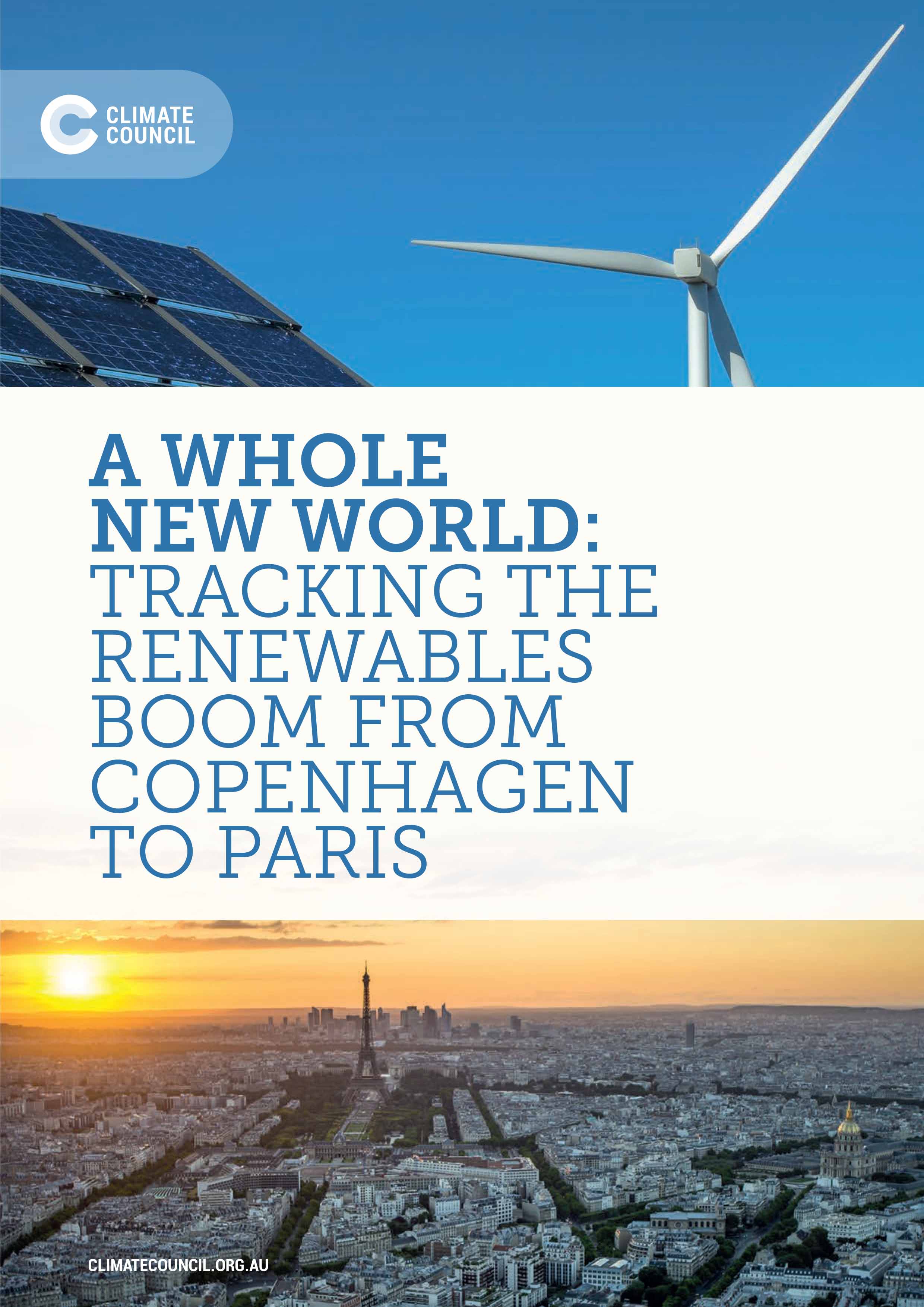This content is more than 8 years old
Renewable energy is rapidly becoming the preferred choice for new electricity generation across the globe, our latest report has revealed.
A Whole New World: Tracking the Renewables Boom from Copenhagen to Paris reveals how the world is in the midst of a dramatic energy revolution which will be further accelerated by a global leaders meeting in Paris for COP21 next week.

KEY FINDINGS
1) The renewable energy landscape has changed dramatically since the last major global climate talks in Copenhagen in 2009.
- Plummeting costs and increasing jobs mean that there is a strong economic case for scaling renewable energy that wasn’t clear in 2009.
- 4,700,000 new jobs have been created worldwide in renewable energy since 2009, while clean energy investment has grown by 50%.
- The price of solar photovoltaic (PV) modules has dropped 75% and wind power has fallen 30% over the last six years.
- The number of countries with renewable energy policy targets has almost doubled since 2009 providing a substantial driver for growing renewables into the future.
2) The Paris climate talks will accelerate further momentum in the global renewable energy boom.
- Countries’ submissions and announcements in the lead up to Paris are locking in future growth in renewable energy.
- More than 100 countries mention renewable energy in their submissions as a component of emissions reduction actions or outcomes.
- Eight of the ten largest emitters have announced plans to scale up renewable energy in the lead up to the Paris climate conference, nearly doubling total annual renewable energy supply, more than tripling renewable electricity generation and nearly a four-fold increase in capacity by 2030.
- The commitments of Brazil, China, the European Union (EU), India, Japan and the United States heading into the Paris climate conference could see these major economies reach 36% renewable electricity generation in 15 years.
3) Renewable energy must expand even more rapidly to avoid the most dangerous impacts of climate change.
- It is incredibly clear that climate change is happening now, driving growing concern worldwide. For instance, in Australia, hot days have doubled in the last fifty years, heatwaves have become hotter, longer and occur more often and extreme bushfire weather has increased.
- Renewable and other zero or low emissions energy will need to triple or quadruple by 2050 to keep global temperature rise to less than 2°C.
- While commitments in the lead up to Paris represent a significant step up for global renewable energy, they are not yet enough to keep global temperature rise to less than 2°C. There will be a focus at the conference and beyond on the need to continually lift global efforts to get on track and transition to a renewable energy future.